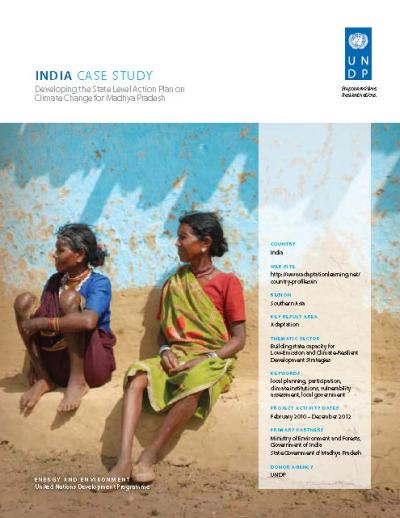
Launched in 2008, India’s National Action Plan on Climate Change (NAPCC) outlines a national agenda for addressing climate-related challenges through eight national missions. Accordingly, State Action Plans on Climate Change (SAPCC) are required to effectively ensure that national objectives are aligned with regional development priorities and the local environmental context. The United Nations Development Programme (UNDP) has partnered with the Government of India’s Ministry of Environment and Forests (MOEF) and other stakeholders to develop a Common Framework for preparation of the SAPCCs. The Common Framework will enable a consistent methodology for identifying state priorities on climate change and a coherent approach to developing adaptation and mitigation options. The framework draws on guidance by UNDP on preparing Green, Low-Emission, Climate Resilient Development Strategies (UNDP 2011). The SAPCC developed in the Indian State of Madhya Pradesh (MP) illustrates the implementation of the process outlined in the Common Framework. Facilitated by actions pursued under four complementary projects, progress in MP to date includes development of an SAPCC policy framework consistent with national priorities, stakeholder engagement in a participatory process for developing the SAPCC, establishment of an institutional structure for carrying out the plan, vulnerability and impact assessments of districts in MP, identification of appropriate adaptation and mitigation strategies that align with national principles, and drafting of the SAPCC by the Government of MP’s Climate Change Cell.
